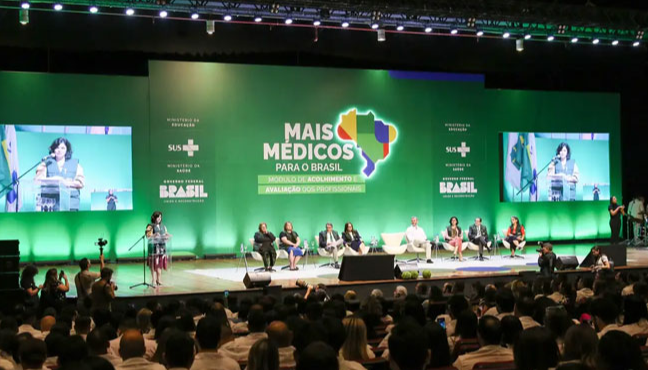
By Maria Josefina Arce
Since last week, 1,600 doctors have been present in 624 municipalities in Brazil, as part of the commitment of President Luiz Inácio Lula da Silva's government to guarantee health care throughout the territory, especially in the most vulnerable and extremely poor areas.
These health professionals are in addition to the almost 25,000 already working in different areas of Brazil and who are part of the More Doctors program, relaunched by Lula da Silva last year.
The director of the Department of Support to Primary Care Management of the Ministry of Health, Wellington Carvalho, pointed out that studies from all over the world show that quality primary care can attend up to 80% of the health problems of a person, family or community, so it is extremely important, he stressed, that this area be strengthened.
This initiative was born in 2013, under the mandate of the then president Dilma Rousseff to alleviate the lack of health personnel in poor and remote areas.
In its first three years of implementation, the program offered medical care to 63 million Brazilians, many of whom had never had access to healthcare. Until its implementation, 700 municipalities in the South American giant did not even have a doctor to serve the local population.
But the arrival to the presidency in 2019 of Jair Bolsonaro once again left millions of people without health coverage. The ultra-right-winger disregarded the program and with his attacks and questioning of the participating Cuban professionals provoked Cuba's withdrawal.
The former army captain ignored the needs and opinions of the population about "More Doctors". A study by the University of Minas Gerais showed that 95% of Brazilians approved of the work of the doctors participating in the program, regardless of nationality.
Now, under the presidency of Lula da Silva, this initiative has been taken up again and, according to the health authorities, it has been extended to include the care of people deprived of their freedom or home.
But it also contemplates the preparation of professionals to deal with situations related to gender violence, alcohol and drug abuse, mental health and other problems.
The current government gives priority to guaranteeing an essential human right, such as access to health care, and spares no effort in carrying out a program which, as the Brazilian president stated, was a success in the past and made it possible for the inhabitants of favelas, remote Amazonian municipalities or small cities in the interior to receive decent public health care.

